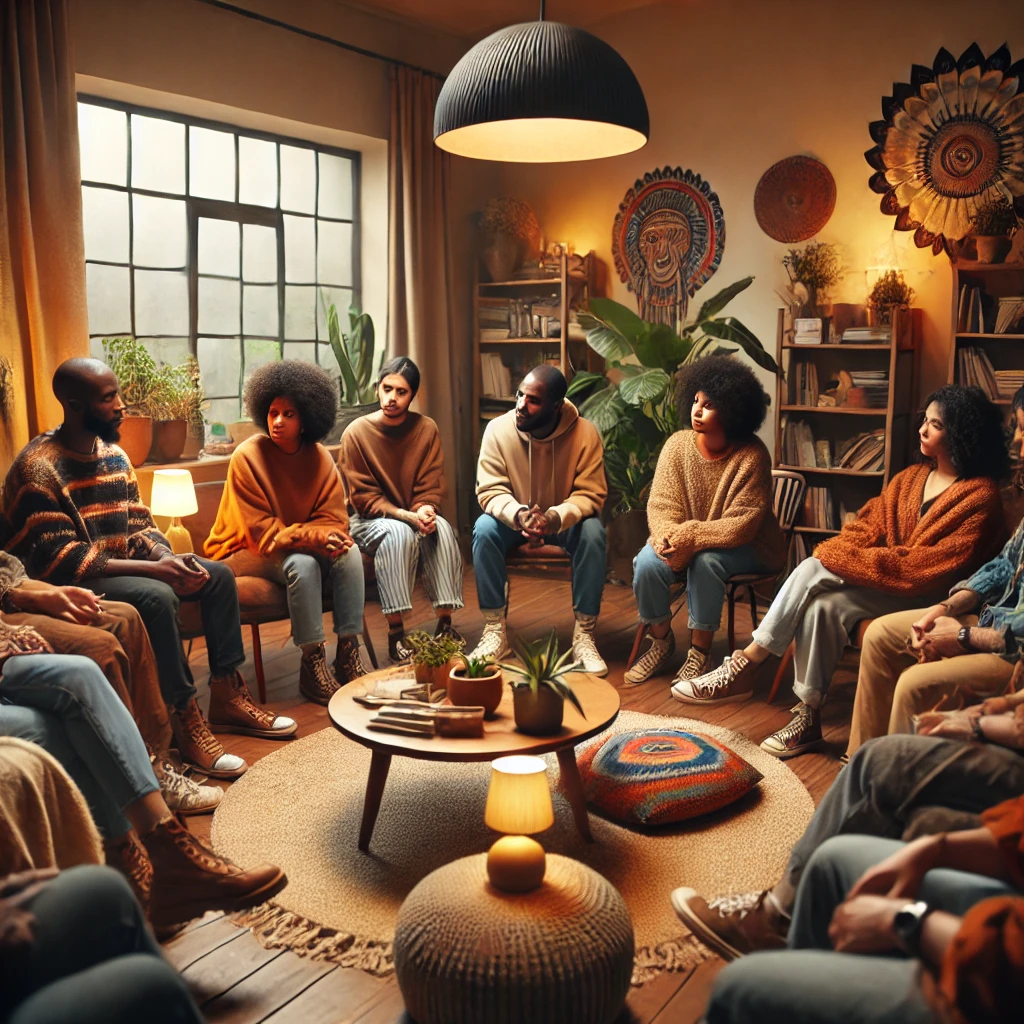Black, Indigenous, People of Color. (BIPOC) Therapy
Are You Struggling With…
- The emotional toll of racism, discrimination, or microaggressions?
- Navigating cultural identity or the feeling of being “caught between worlds”?
- A sense of isolation or feeling misunderstood in predominantly non-BIPOC spaces?
- The impact of intergenerational trauma or cultural expectations on your mental health?
- Managing stress or anxiety related to societal pressures or stereotypes?
If any of these resonate, BIPOC therapy can help by providing a culturally responsive space where you are heard, valued, and supported.
What Does BIPOC Therapy Help With?
BIPOC therapy can address a wide range of emotional, mental health, and cultural challenges, including:
- Racism-related trauma and its psychological impact
- Navigating cultural identity and the stress of assimilation
- Addressing intergenerational trauma within families and communities
- Processing experiences of discrimination, prejudice, or systemic inequality
- Stress, anxiety, or depression linked to cultural and societal pressures
- Developing self-empowerment and resilience in the face of adversity
- Improving self-esteem and sense of belonging in a predominantly non-BIPOC society


What is BIPOC Therapy?
BIPOC therapy is a form of psychotherapy specifically designed to support the mental health needs of individuals from Black, Indigenous, and People of Color communities. It focuses on acknowledging and addressing the systemic and personal challenges related to race, culture, and identity. BIPOC therapy recognizes the intersections of identity and how societal structures can impact mental health, aiming to foster healing and empowerment.
How is BIPOC Therapy Done?
In BIPOC therapy, sessions are typically 45-50 minutes and focus on the client’s unique experiences related to their racial and cultural identity. The therapist provides a culturally affirming, empathetic space where clients can explore their feelings without fear of judgment or misunderstanding. Therapists may integrate culturally relevant approaches, including storytelling, mindfulness, or traditional healing practices. The goal is to honor the client’s identity while helping them process emotions, build resilience, and overcome challenges.
How Can BIPOC Therapy Help You?
BIPOC therapy is designed to help you:
- Heal from the emotional and psychological impacts of racism and discrimination
- Build a strong sense of identity and cultural pride
- Process intergenerational trauma and its effects on mental health
- Navigate the complexities of being part of a BIPOC community in a predominantly non-BIPOC world
- Develop tools for resilience, self-compassion, and emotional regulation
Find Culturally Sensitive Support
If you’re looking for a therapist who understands your cultural background and the challenges you face as a BIPOC individual, Shifa Centre is here for you. Our therapists are committed to providing the support and guidance you need to heal, grow, and thrive in a space that honors your unique experience.
